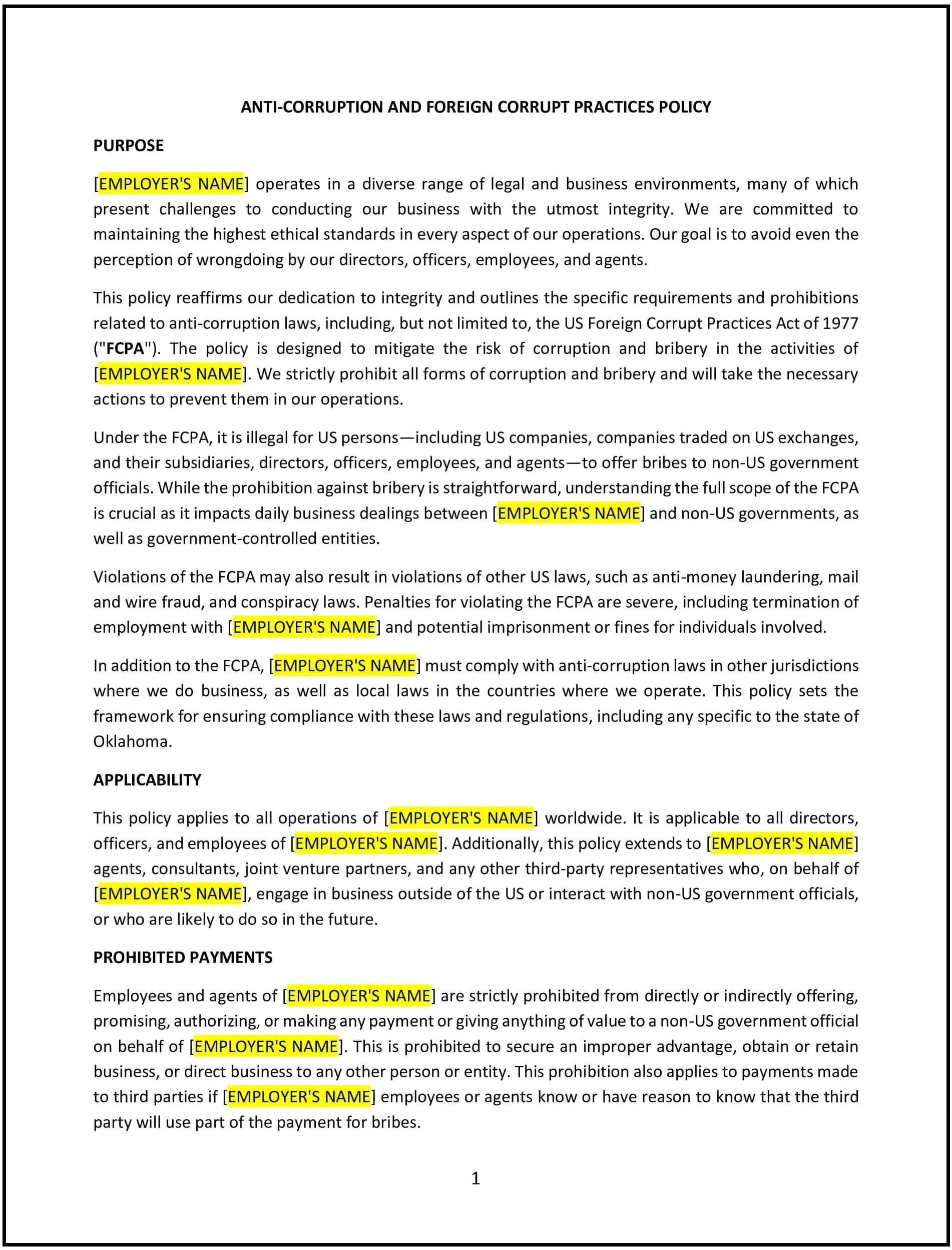Anti-corruption and foreign corrupt practices policy (Oklahoma): Free template
Got contracts to review? While you're here for policies, let Cobrief make contract review effortless—start your free review now.

Customize this template for free
Anti-corruption and foreign corrupt practices policy (Oklahoma)
This anti-corruption and foreign corrupt practices policy is designed to help Oklahoma businesses prevent bribery, corruption, and unethical practices in their operations. It outlines guidelines for compliance with laws such as the U.S. Foreign Corrupt Practices Act (FCPA) and promotes ethical business conduct.
By adopting this policy, businesses can reduce legal risks, maintain their reputation, and foster a culture of integrity.
How to use this anti-corruption and foreign corrupt practices policy (Oklahoma)
- Define prohibited conduct: Clearly explain what constitutes bribery, corruption, and unethical practices, including offering or accepting improper payments.
- Establish reporting procedures: Provide steps for employees to report suspected corruption or unethical behavior, including anonymous reporting options.
- Outline compliance measures: Describe how the business will ensure compliance, such as conducting due diligence on third parties and maintaining accurate records.
- Address gifts and entertainment: Set limits on gifts, hospitality, and entertainment to prevent conflicts of interest or improper influence.
- Train employees: Educate staff on recognizing and avoiding corrupt practices, and train managers on handling reports of misconduct.
- Review and update: Assess the policy annually to ensure it aligns with current laws and best practices.
Benefits of using this anti-corruption and foreign corrupt practices policy (Oklahoma)
This policy offers several advantages for Oklahoma businesses:
- Reduces legal risks: Helps prevent violations of anti-corruption laws, such as the FCPA, which can result in fines or penalties.
- Protects reputation: Demonstrates a commitment to ethical business practices, enhancing trust with clients, partners, and stakeholders.
- Promotes integrity: Fosters a culture of honesty and accountability within the organization.
- Mitigates risks: Reduces the likelihood of financial losses or reputational damage due to corrupt practices.
- Builds trust: Shows employees and external parties that the business operates with transparency and integrity.
Tips for using this anti-corruption and foreign corrupt practices policy (Oklahoma)
- Communicate clearly: Ensure all employees understand the policy and their responsibilities in preventing corruption.
- Provide training: Regularly train employees on anti-corruption laws and ethical business practices.
- Monitor compliance: Conduct regular audits and reviews to ensure adherence to the policy.
- Encourage reporting: Foster a culture where employees feel safe reporting suspected corruption without fear of retaliation.
- Update regularly: Review the policy annually to ensure it remains effective and compliant with current laws.